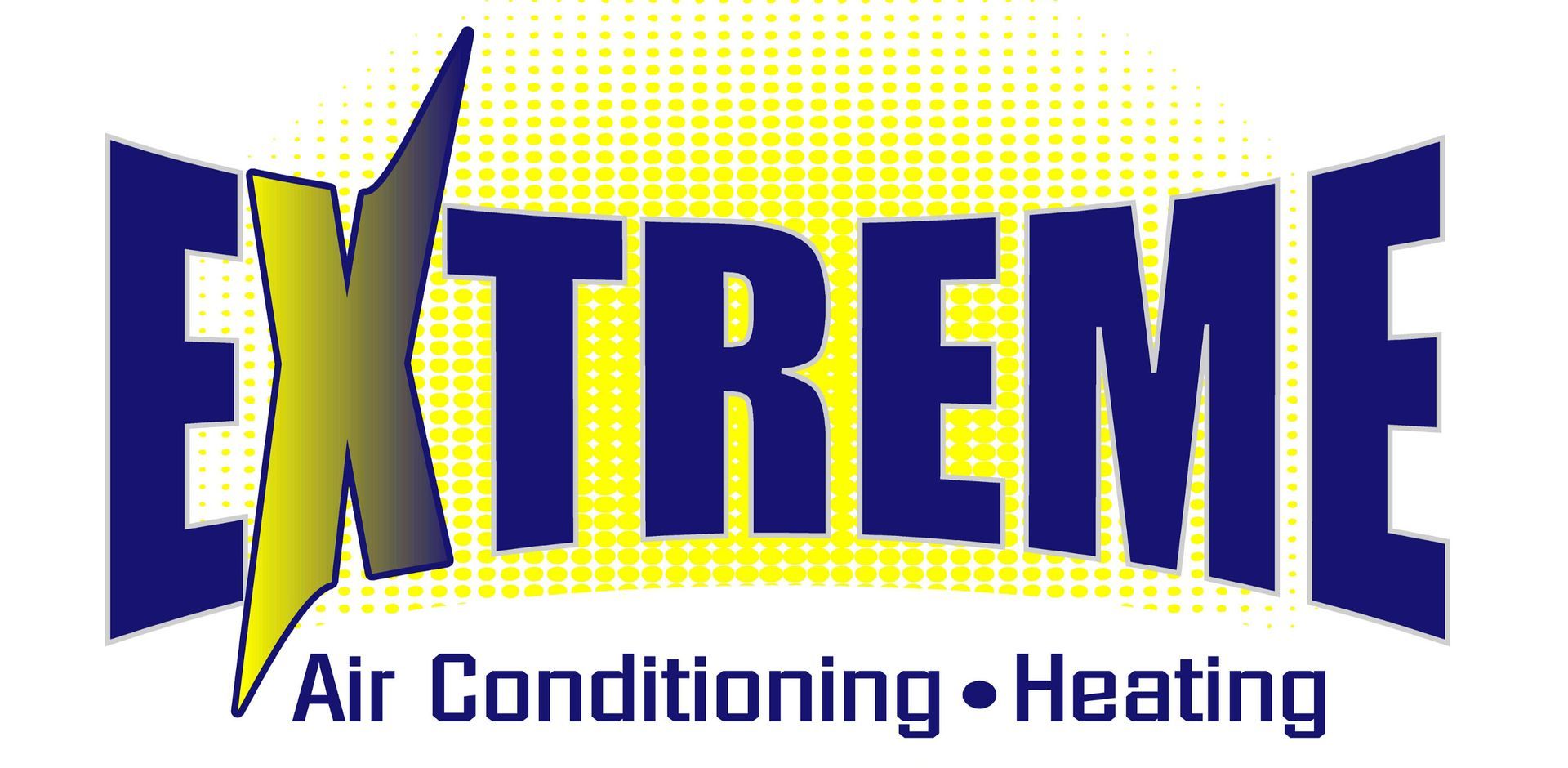Extreme Blog
Tips and tricks to help you during this journey. Learn about real estate, property management and everything in between.
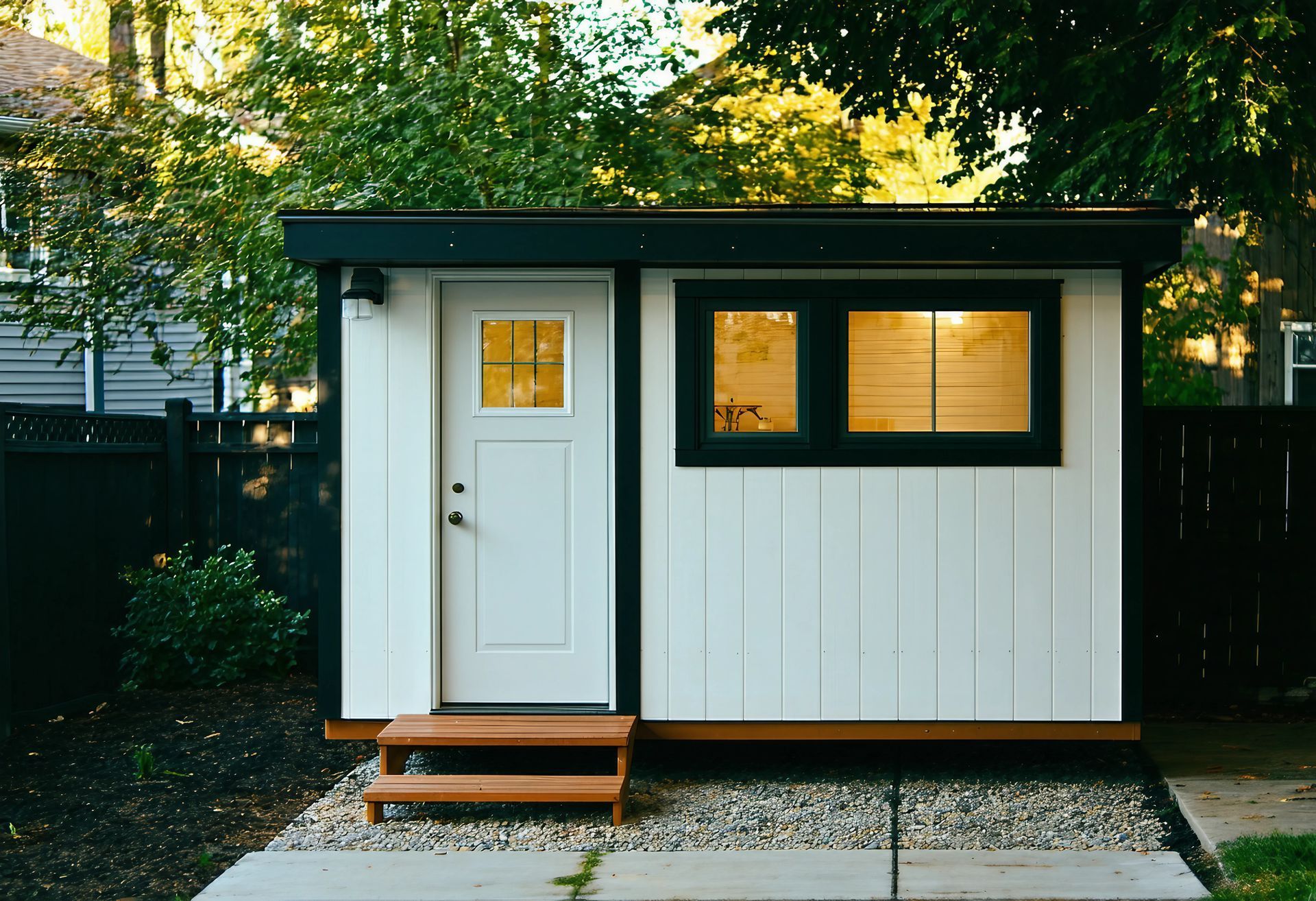
February 17, 2025
When adding or updating an accessory dwelling unit (ADU), one of the most critical decisions involves selecting the right HVAC system. Not only does this affect the comfort of your ADU, but it also plays a significant role in your investment's short-term and long-term financials. Initial Costs of HVAC Systems for ADUs The cost of an HVAC system for an ADU can vary widely based on several factors including the type of system, the unit's size, and the space's specific needs. Here’s what to consider: Types of Systems and Costs Ductless Mini-Splits: These are among the most popular choices for ADUs due to their efficiency and the relatively straightforward installation process. The cost typically ranges from $3,000 to $10,000. Central Air Systems: A central air system might be necessary if your ADU is larger or connected to the main house’s system. These systems can be more expensive, generally starting around $6,000 to $12,000. Heat Pumps: Offering heating and cooling, heat pumps are an efficient option suitable for climates with mild winters. Installation costs usually fall between $5,000 and $15,000. Installation and Other Initial Costs Installation costs can be influenced by the installation's complexity, the ADU's location, and the current state of any existing HVAC infrastructure. Additionally, you may need to consider costs for: Permits Potential ductwork (if choosing a ducted system) Upgrades to electrical systems or insulation to accommodate the new unit Long-Term Savings Investing in a high-efficiency HVAC system can lead to significant long-term savings. Here’s how: Energy Efficiency High-efficiency systems use less energy to heat and cool your ADU, directly lowering utility bills. For instance, switching to a ductless mini-split system can save up to 30% on heating and cooling costs compared to traditional forced-air systems due to their lack of ducts and their efficient zoning capabilities. Maintenance Costs Newer systems are generally more reliable and come with warranties that can reduce the cost of maintenance for several years. Additionally, when properly maintained, modern systems often require fewer frequent repairs. Environmental Incentives Depending on your location, you may qualify for rebates, tax incentives, or other government incentives to install energy-efficient HVAC systems. These can significantly offset the initial cost. Return on Investment (ROI) Calculating the ROI of an HVAC system in an ADU involves considering the increased property value, the attractiveness of the ADU to potential renters or buyers, and the operational savings. Increased Property Value An ADU with a high-efficiency HVAC system can increase the overall value of your property. Prospective buyers or renters looking for comfort and energy efficiency might be willing to pay a premium, knowing that their utility bills will be lower. Attractiveness to Renters/Buyers A comfortable, energy-efficient ADU is more attractive in the rental and buyer markets. This can lead to shorter vacancy periods and potentially higher rental prices. Operational Savings The monthly savings on energy bills contribute directly to the ROI, helping to recoup the initial investment over time. Conclusion Investing in a high-efficiency HVAC system for your ADU can seem costly upfront but offers substantial financial benefits in the long run. By choosing the right system and taking advantage of any available incentives, you can enhance the comfort of your ADU, reduce ongoing energy costs, and increase the overall value of your property. Remember, the key to maximizing your investment is to balance the initial costs with the long-term savings and potential increases in property value.
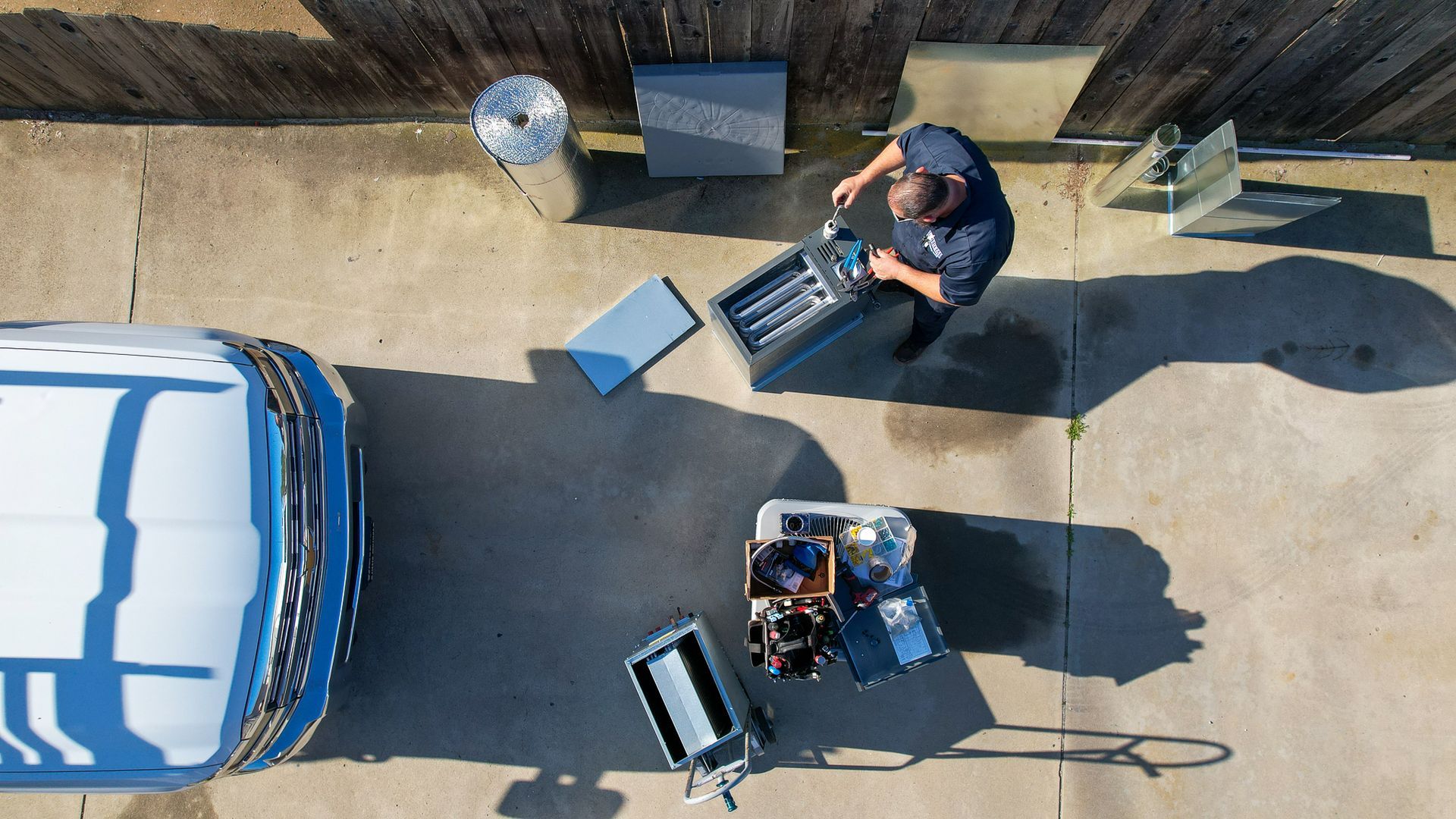
November 12, 2024
When your HVAC system fails unexpectedly, depending on the severity and timing of the issue, it can disrupt your comfort and pose safety concerns. Knowing how to handle these emergencies efficiently and safely can minimize inconvenience, prevent costly damages, and restore your system quickly. Here are actionable steps and tips on dealing with HVAC emergencies, identifying them, implementing temporary solutions, and expediting repairs responsibly. Identifying an HVAC Emergency The first step in handling an HVAC emergency is recognizing one. Here are common signs that your HVAC system needs urgent attention: Strange Noises: Loud, unusual noises such as banging, screeching, or grinding can indicate serious mechanical problems that may lead to complete system failure. No Heating or Cooling: A complete lack of heating or cooling, especially during extreme weather conditions, qualifies as an emergency due to the potential risks to health and safety. Electrical Issues: Signs of electrical problems, including burning smells, frequent circuit breaker trips, or visible sparks, are immediate red flags that require urgent professional attention. Water Leaks: Significant leaking can cause water damage in your home and adversely affect your system’s components. Steps to Take in an HVAC Emergency 1. Turn Off the System If you suspect a serious issue, the first step is to turn off your HVAC system to prevent further damage or hazards, especially if there are electrical issues or strange noises. 2. Assess the Situation Quickly assess the situation to understand the extent of the problem. Check for any obvious signs of damage or malfunction. This information will be crucial when you contact a repair service. 3. Contact a Professional Contact professional HVAC services immediately. Describe the symptoms and any actions you’ve taken. For after-hours emergencies, many companies offer 24/7 emergency services. 4. Implement Temporary Solutions While waiting for professional help, consider temporary solutions to mitigate discomfort. For heating issues, use space heaters or increase insulation by sealing drafts. For cooling issues, use fans and keep blinds or curtains closed to block out sun heat. 5. Do Not Attempt DIY Repairs Avoid fixing complex HVAC issues, especially those involving electrical components or refrigerants. Doing so can void warranties, exacerbate problems, or lead to personal injury. How to Expedite Repairs 1. Choose a Reliable HVAC Service Keep contact information for a trusted, local HVAC repair service that offers emergency repairs handy. Choosing a service that knows your HVAC system can also speed up the repair process. 2. Regular Maintenance Regular maintenance reduces the risk of unexpected breakdowns and ensures your system is in good working order. Maintenance technicians can often spot and resolve potential issues before they become emergencies. 3. Be Prepared Keep a record of your HVAC model, serial number, and a history of services done. This information can be very helpful to technicians and can speed up the service process. 4. Understand Your System Understanding basic operational details about your HVAC system can help you provide accurate information to technicians, expediting the diagnostic and repair process. Conclusion HVAC emergencies can be stressful, but being prepared and knowing how to respond efficiently can make a significant difference in handling these situations. By recognizing the signs of an emergency, knowing what steps to take immediately, and maintaining a relationship with a professional HVAC service , you can ensure that your system is repaired swiftly and safely, restoring comfort and security to your home.
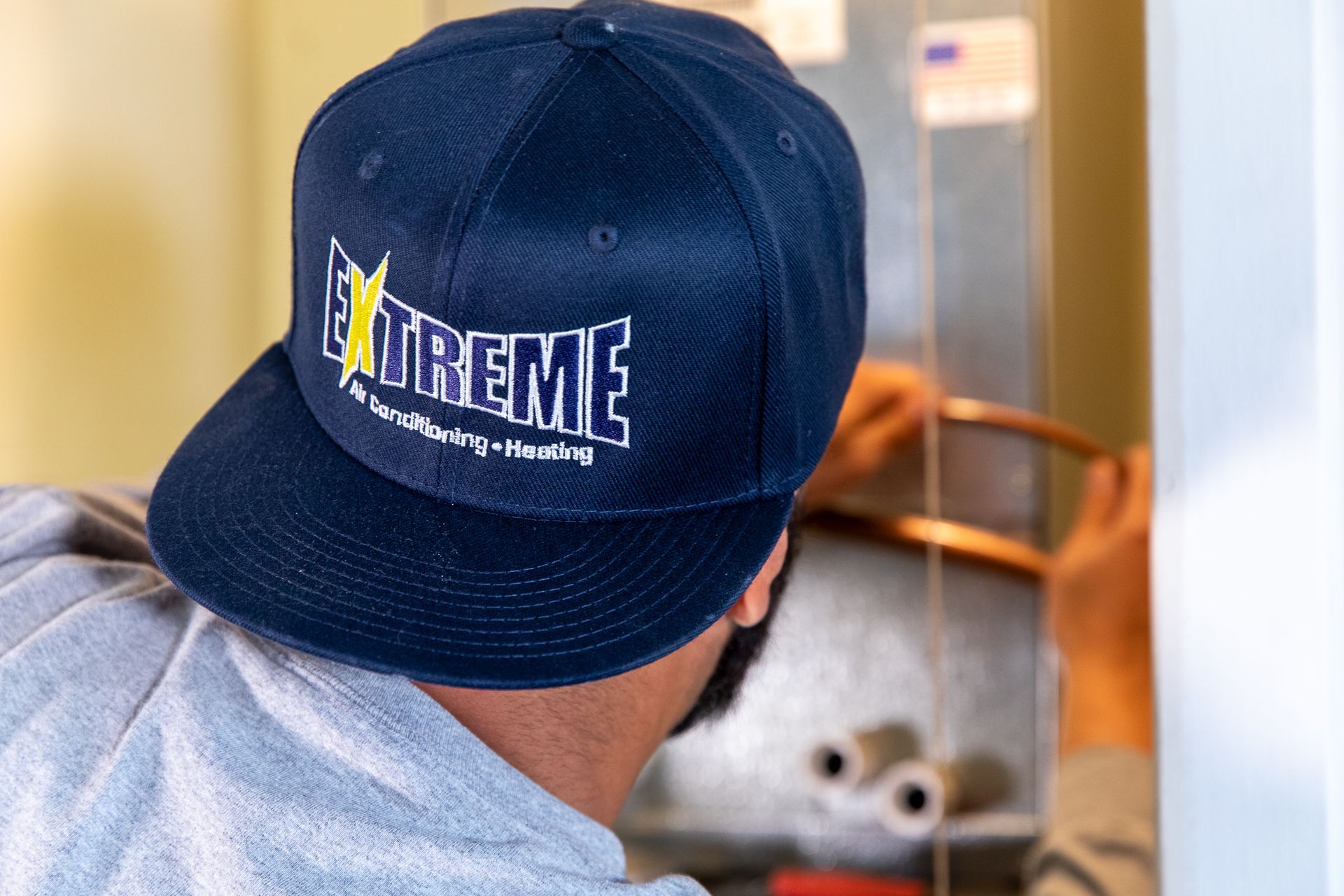
October 16, 2024
When it comes to maintaining, repairing, or replacing your HVAC system, selecting the right contractor is as crucial as choosing the system itself. A skilled and reliable HVAC contractor can ensure that your heating, cooling, and ventilation systems are efficient, effective, and long-lasting. Here are essential criteria to consider and questions to ask when choosing an HVAC contractor to ensure you're making the best decision for your home and family. 1. Check Licensing and Certifications First and foremost, a reputable HVAC contractor should have the proper licensing required by your state or local authorities. Licensing ensures that the contractor meets minimum industry standards for knowledge and experience. Additionally, look for certifications from respected bodies such as the North American Technician Excellence (NATE), which provides a benchmark for technical expertise. These credentials testify to the contractor's commitment to professionalism and quality. 2. Evaluate Experience Experience matters in the HVAC industry. The longevity of a contractor in the business often indicates reliability and a solid track record. Experienced contractors are more likely to understand the intricacies of various systems and how they should operate in your local climate. They can also provide insights into your home's most cost-effective and energy-efficient solutions. 3. Read Customer Reviews and Testimonials In today's digital age, customer reviews are valuable when selecting any service provider. Read reviews on independent websites, check the contractor’s site for testimonials, and consider feedback from social media. Pay attention to how the contractor handles both positive and negative reviews. This can provide insight into their customer service approach and reliability. 4. Ask for References Don't hesitate to ask the contractor for references from previous jobs. Contact these references to inquire about their experience working with the contractor. Ask if the project was completed on time, within the budget, and to their satisfaction. This firsthand feedback is invaluable. 5. Consider their Specialization HVAC systems can vary greatly, so choosing a contractor with specific experience with your system's brand or type is important. Some contractors specialize in certain systems or services like installation, repair, or maintenance. Ensure that their expertise aligns with your specific needs. 6. Assess their Professionalism and Customer Service The professionalism of a contractor can often be gauged during your initial interactions. Are they punctual for appointments? Do they provide clear, comprehensive quotes? Are they courteous and easy to communicate with? A contractor's demeanor often reflects their work ethic and respect for their clients. 7. Inquire About Warranties and Guarantees Reputable contractors will stand behind their work with warranties and guarantees. Ask about the details of these policies; a good warranty will cover the equipment and the labor for a reasonable period. Questions to Ask Before Hiring an HVAC Contractor To further ensure that you choose the right HVAC contractor, consider asking the following questions: What specific experience do you have with my system’s make and model? How do you handle unexpected issues or complications during the project? Can you provide a detailed written estimate? What is your process for scheduling repairs and maintenance? How do you ensure compliance with current HVAC regulations and codes? Conclusion Choosing the right HVAC contractor impacts your home's comfort, air quality, and energy efficiency. By thoroughly vetting potential contractors based on their licensing, experience, customer feedback, and specific needs, you can feel confident in your choice. Remember, a good HVAC contractor is a service provider and a long-term partner in maintaining your home’s comfort and safety.
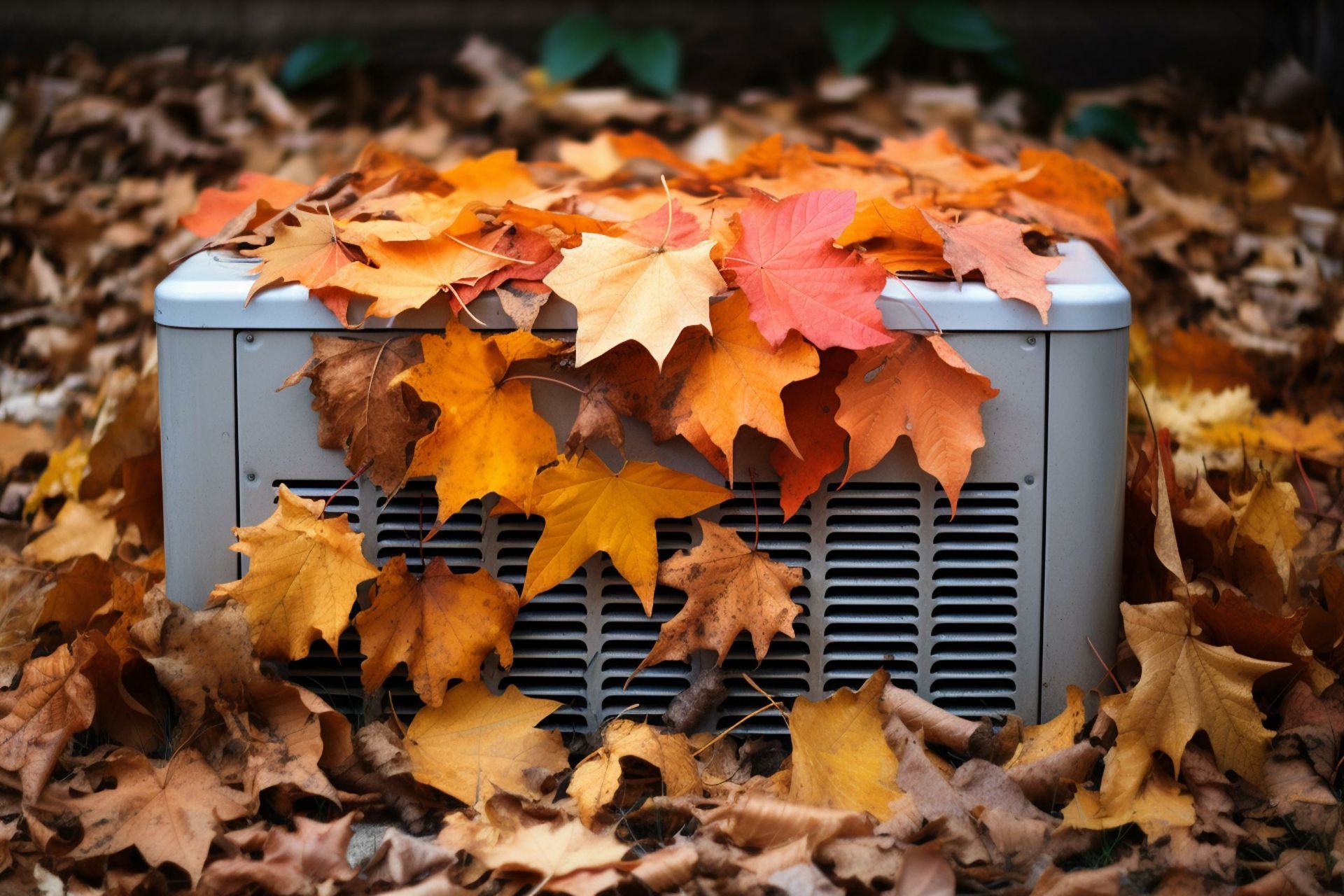
September 20, 2024
As the seasons change, so do the demands on your home's HVAC system. Properly preparing your HVAC unit for seasonal shifts ensures optimal performance, extends the lifespan of your system, and can prevent costly repairs. Here’s a comprehensive guide to maintaining your HVAC system throughout the year, ensuring it runs efficiently and effectively, no matter the weather. Spring Maintenance: Set Up for Cooling Inspect and Replace Filters Spring is the perfect time to check and replace your HVAC filters after the heavy usage during winter. Clean filters improve air quality and system efficiency. Clean Coils and Units Remove debris from around the outdoor units. Clean the coils to ensure unobstructed airflow and efficient operation. Dirty coils can cause the system to overwork, leading to increased energy costs and potential mechanical failures. Schedule Professional Maintenance A professional HVAC technician can perform a detailed inspection and tune-up of your system. This proactive inspection helps prevent summer breakdowns by checking refrigerant levels, testing for leaks, and ensuring all electrical components are in good working order. Summer Readiness: Optimizing Cooling Test Your System Early Before the heat of summer sets in, test your system by running the air conditioner for a few hours. Listen for any unusual noises and monitor for consistent cooling. Address any issues before peak temperatures arrive. Adjust Your Thermostat Switch your thermostat to the cooling mode and consider updating its settings to accommodate summer living schedules. Programmable thermostats can increase the temperature when you’re not home to save energy and reduce costs. Clear Drain Lines Check the condensate drain line for clogs. Clogs can cause water leaks and increase humidity inside your home. Flushing the line can prevent water-related issues and improve system efficiency. Fall Preparation: Transitioning to Heating Check for Air Leaks Inspect windows and doors for leaks to ensure warm air stays inside and cold air stays out. Sealing leaks can dramatically improve heating efficiency and comfort during colder months. Reverse Ceiling Fans Change the direction of ceiling fans to rotate clockwise, which helps push warm air into the room, enhancing energy efficiency. Heating System Check-Up Like spring, fall is an ideal time for a professional to inspect and service your heating system. This should include checking the ignition system, examining heating elements or burners, and ensuring the heat exchanger is intact and corrosion-free. Winterizing AC Units: Protecting Your Investment Clean and Cover the Outdoor Unit Remove leaves, dirt, and debris from the outdoor air conditioning units. Covering the unit can protect it from ice and debris accumulation during winter, but ensure the cover is breathable to prevent moisture buildup. Inspect Insulation Check the insulation on refrigerant lines leading into your home annually and replace it if worn or damaged to protect from freezing temperatures and energy loss. Waking Up Your System for Summer Remove Covers and Check Surroundings As spring arrives, remove covers from outdoor units and clear any debris or vegetation that may have accumulated around them to ensure airflow is not obstructed. Check Refrigerant Levels Low refrigerant levels can reduce the efficiency of your air conditioner. Have a technician check the levels during your spring maintenance visit. Test the System Turn on the system before the weather heats up to make sure everything is in working order. This will allow you to address any issues before they become major problems during the summer. By following these seasonal maintenance tips, you can keep your HVAC system running smoothly all year, ensuring comfortable temperatures and efficient operation regardless of the season. Regular maintenance saves money on energy bills and helps prevent unexpected breakdowns and costly repairs, making it a wise investment for the longevity of your HVAC system.
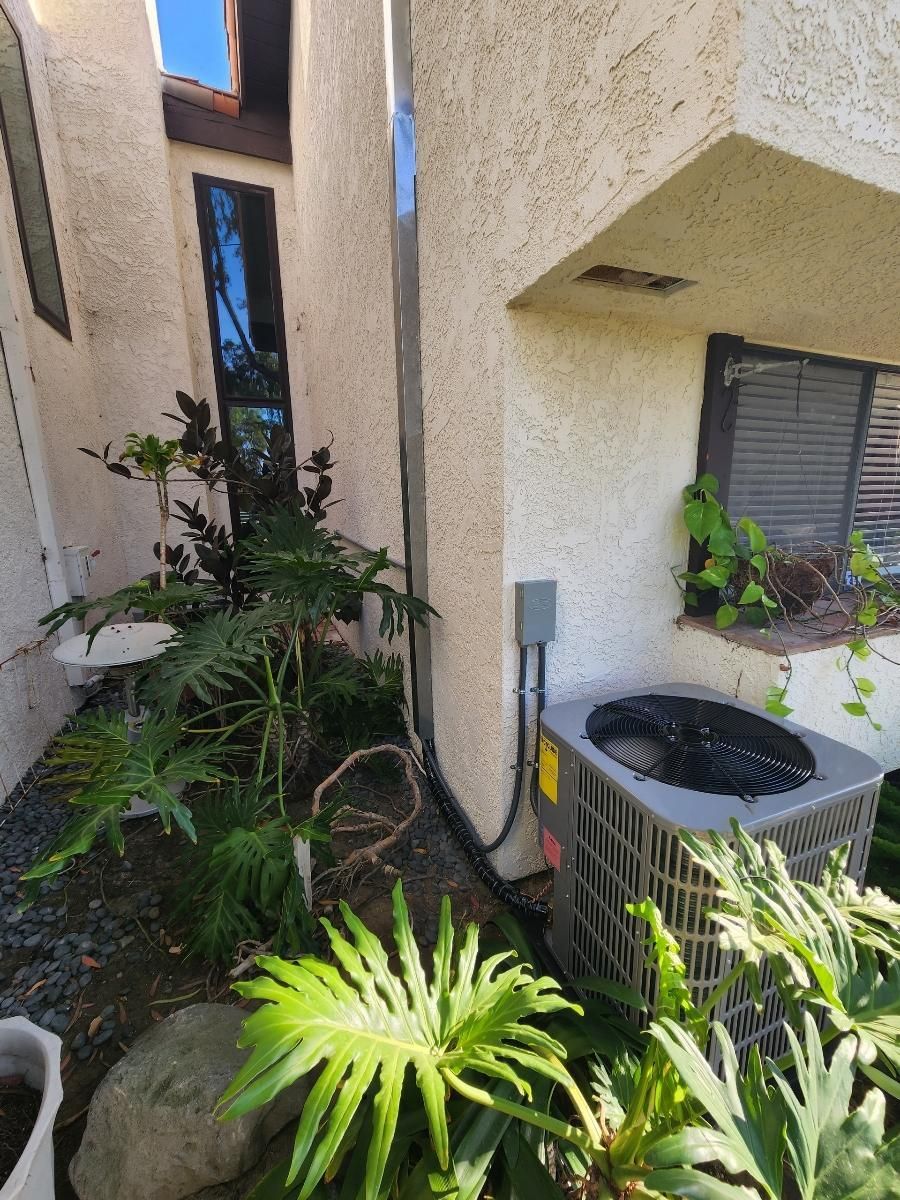
August 23, 2024
Installing a new HVAC system is a significant investment that many homeowners might approach with caution due to the initial costs involved. However, when considering the long-term benefits, including energy savings, increased property value, and potential tax incentives, the return on investment (ROI) can make this upgrade a wise financial decision. This article dives deep into these factors to help you understand why investing in a new, more efficient HVAC system could benefit your home and your wallet. Energy Savings: Lower Bills, Higher Efficiency The most immediate benefit of upgrading to a new HVAC system is the potential for substantial energy savings. Modern HVAC systems are designed to be much more efficient than older models. This efficiency comes from technological advancements, including better compressors, smarter thermostats, and more effective heat exchangers. For example, replacing an old system with a new ENERGY STAR-rated model can save homeowners 20% to 40% on their heating and cooling costs annually. Quantifying Savings If your average annual energy bill is $2,000 with an old HVAC system, upgrading to a more efficient system could save you between $400 and $800 yearly. These savings can significantly offset the initial installation cost over the typical lifespan of a system (about 15-20 years). Increased Property Value Another significant aspect of the ROI from a new HVAC system is the increase in property value it can provide. A new, efficient HVAC system is a key selling point that can attract buyers looking for a home that requires less maintenance and lower operational costs. According to real estate experts, homeowners can expect a return of at least 50% of their HVAC investment in terms of property value increase. This figure can be much higher in many cases, especially in markets where energy efficiency is highly valued. Attracting Eco-Conscious Buyers As environmental concerns become more prominent, eco-friendly home features have become a significant draw for homebuyers. An efficient HVAC system reduces utility bills and minimizes the home's carbon footprint, making your property more attractive to a growing demographic of eco-conscious buyers. Tax Incentives and Rebates Many governments and utility companies offer tax incentives, rebates, and other programs to homeowners who install energy-efficient HVAC systems to encourage energy conservation. These can include: Federal Tax Credits: Homeowners in the U.S. can take advantage of tax credits for certain energy-efficient HVAC systems (check the latest IRS guidelines or speak with a tax professional for specifics). State and Local Rebates: Many states and municipalities also offer incentives to reduce costs further. Utility Rebates: Some local utility companies provide rebates for installing energy-efficient systems, which can help offset the initial cost. Navigating the Incentives It's important to research and apply for these incentives as soon as possible, as they can change annually and are sometimes available on a first-come, first-served basis. These incentives can significantly decrease the overall cost and improve the ROI of your new HVAC installation. Long-Term Durability and Reduced Maintenance Modern HVAC systems operate more efficiently and are designed to be more durable and require less maintenance than older systems. This translates into additional cost savings over the system's lifetime, including fewer repair bills and a longer period before replacement is necessary. Moreover, many manufacturers offer extensive warranties to protect your investment for years. Conclusion While the upfront cost of a new HVAC system can be substantial, the long-term savings, increased home value, and potential tax incentives often lead to a favorable ROI. By choosing a modern, energy-efficient system, you're enhancing your comfort and making a wise financial investment that can pay dividends for years to come. As you consider upgrading your HVAC system, consult with HVAC professionals who can provide tailored advice based on your specific home and needs, ensuring that you maximize the benefits of your investment.
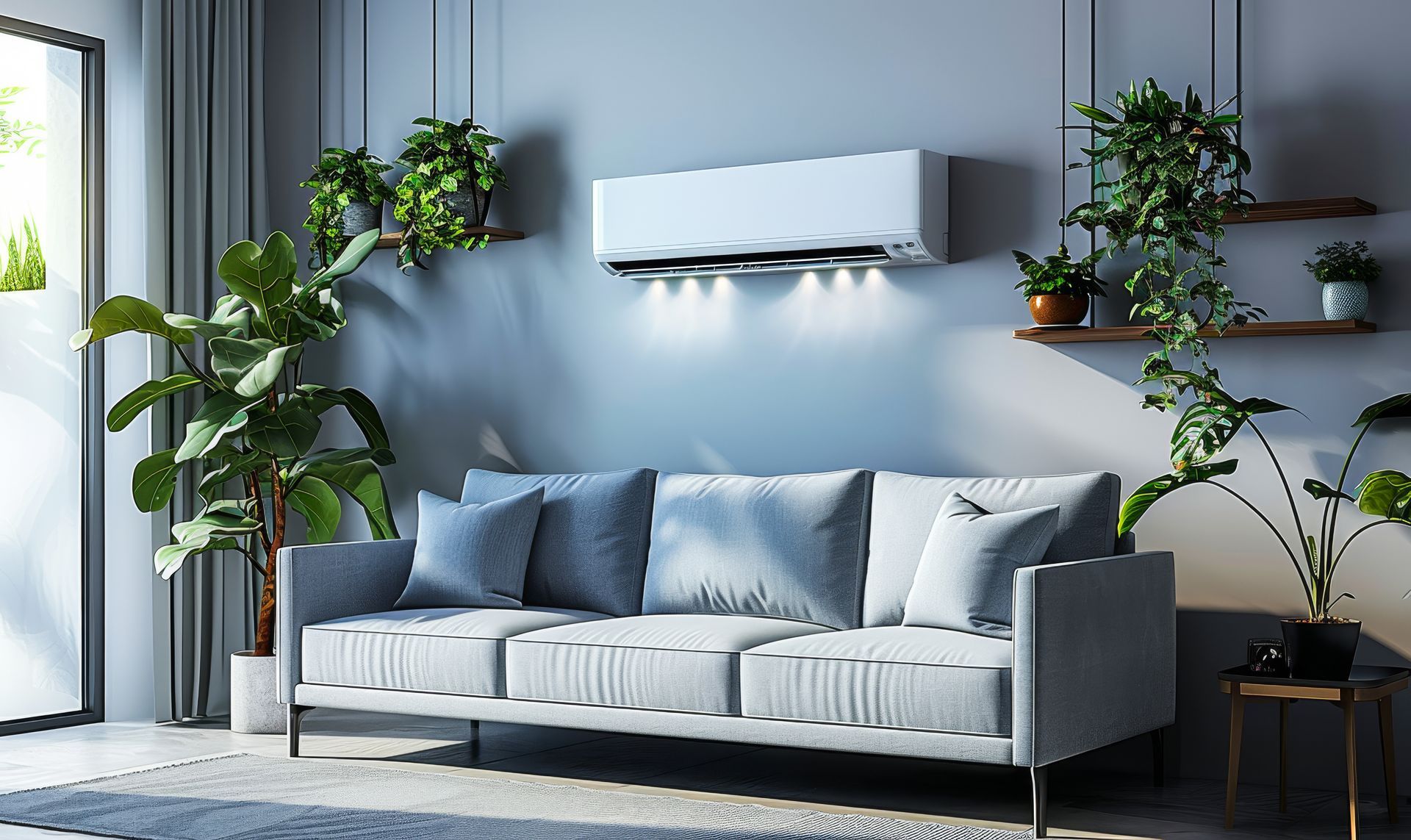
July 23, 2024
Homeowners are increasingly seeking sustainable solutions for their living spaces. This extends to one of the most energy-consuming systems in our homes: the HVAC system. Fortunately, advancements in technology have introduced eco-friendly options that reduce our carbon footprint and offer significant savings on energy bills. This blog post explores some of the most influential and sustainable heating and cooling practices, including solar-powered air conditioning and geothermal heating systems. Solar-Powered Air Conditioning: Harnessing the Sun's Energy Solar-powered air conditioning is one of the most promising developments in eco-friendly HVAC technology. This system uses solar panels, typically installed on the roof, to collect and convert sunlight into electrical energy to power your air conditioner. The benefits of solar-powered air conditioning include: Reduced Electricity Use: By relying on solar energy during the day, these systems significantly reduce the use of electricity sourced from non-renewable resources. Lower Utility Bills: Although the initial setup costs might be higher, solar air conditioners can drastically reduce your monthly utility bills. Increased Energy Independence: Solar-powered systems reduce your dependence on the grid, providing a consistent cooling solution, especially during peak load times. Geothermal Heating Systems: The Ground as a Heat Source Geothermal heating systems represent another innovative approach to eco-friendly home temperature management. These systems utilize the earth’s constant underground temperature to heat and cool your home. Key aspects include: Efficiency: Geothermal systems can be up to four times more efficient than traditional HVAC systems because they transfer heat instead of generating it by burning fuel. Durability: With fewer moving parts and protection from outdoor elements, geothermal systems generally have a longer lifespan than conventional systems. Cost-Effectiveness Over Time: While the initial installation cost of a geothermal system is significant, the long-term savings on energy costs and maintenance can be substantial. Enhancing Efficiency with Smart Thermostats Incorporating a smart thermostat into your home’s HVAC system is another step towards sustainability. These devices optimize heating and cooling operations by: Learning Your Schedule: Smart thermostats adjust the temperature based on your daily patterns and preferences. Remote Adjustments: You can control the temperature from your smartphone, allowing for adjustments that minimize energy use when you're away from home. Energy Usage Reports: Many smart thermostats provide detailed energy usage reports, helping you better understand and manage your consumption. Regular Maintenance: A Necessity for Efficiency No matter the type of system, regular maintenance is crucial to ensuring efficiency and longevity. This includes: Regular Filter Changes: Clean filters allow your system to operate more efficiently and improve indoor air quality. Annual Inspections: Professional inspections can catch issues before they become costly problems and ensure that your system runs as efficiently as possible. Sealing and Insulation: Proper sealing and insulation reduce the workload on your HVAC system by keeping cool air in the summer and warm air in the winter. Adopting Sustainable Practices Transitioning to eco-friendly heating and cooling systems is a valuable investment in the environment and your wallet. By choosing systems like solar-powered air conditioning or geothermal heating and complementing them with smart technology and regular maintenance, you can significantly enhance the sustainability of your home. These practices contribute to a healthier planet and a more comfortable and cost-effective living environment. Remember, each small step towards sustainability can make a substantial difference. By adopting eco-friendly HVAC solutions, you are proactively reducing your ecological footprint while enjoying the comfort of your home in an energy-efficient and environmentally responsible way.
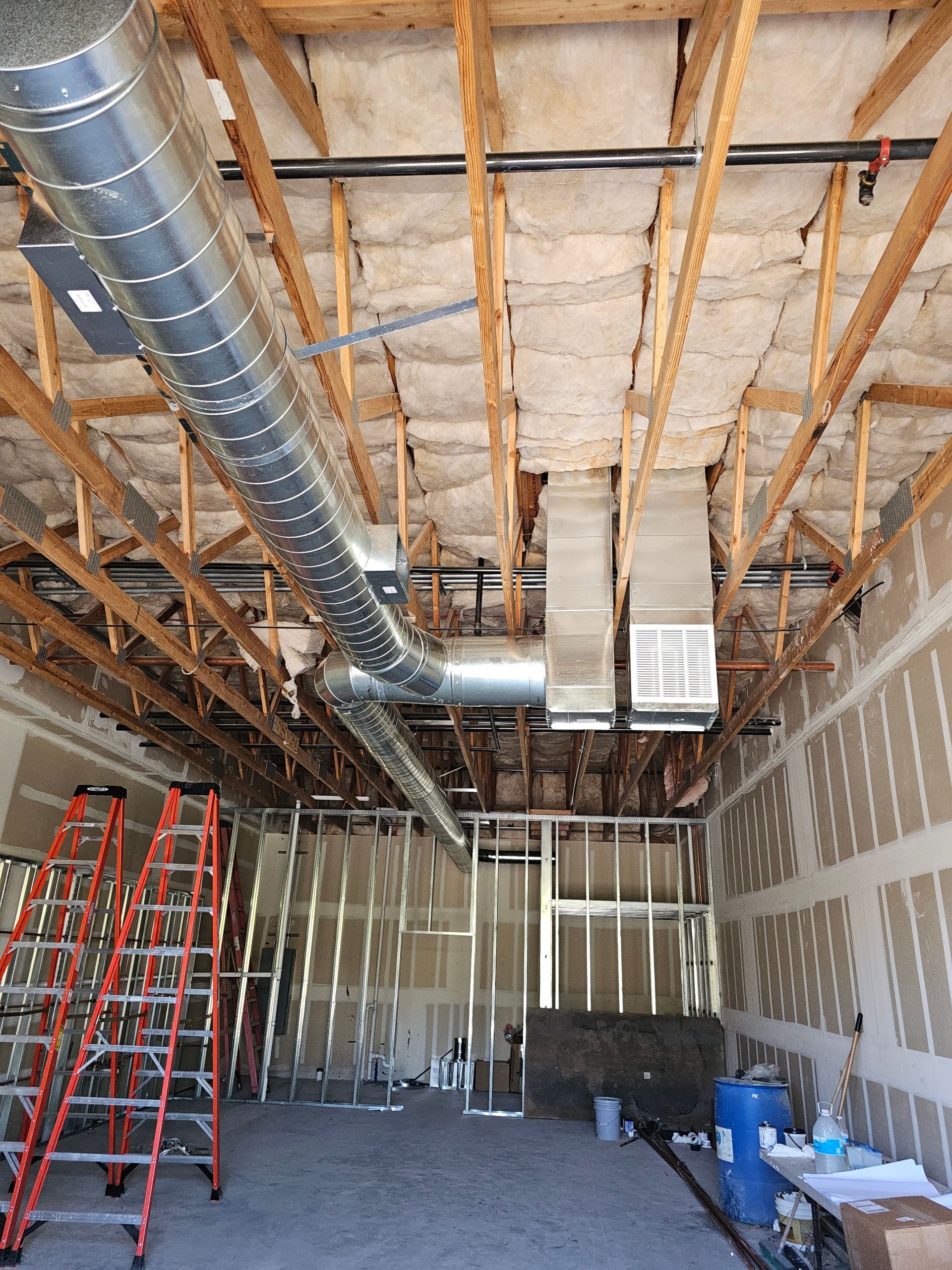
June 17, 2024
Heating, ventilation, and air conditioning (HVAC) systems in commercial settings are not just about maintaining a comfortable temperature; they are crucial to any business's overall productivity, health, and operational efficiency. Unlike residential systems, commercial HVAC systems must be specifically tailored to fit the unique needs and demands of different business types and spaces. Understanding how businesses can design efficient HVAC systems is important. This article underscores the importance of regular maintenance and provides guidance on choosing the right system for various commercial environments. Understanding the Unique Requirements of Commercial HVAC Commercial HVAC systems are inherently complex due to the scale and variety of applications they must accommodate. From small boutiques to large office buildings or manufacturing plants, each business type presents distinct challenges and requirements for heating and cooling: Scale and Layout: Commercial spaces generally have larger square footage than residential areas, which can include multiple floors and complex layouts. Heat Load: The number of occupants, the presence of electronic equipment, and hours of operation can significantly influence the heat load and ventilation requirements. Energy Efficiency: Businesses often operate for extended hours, making energy efficiency a critical factor in controlling operational costs. Air Quality: Commercial buildings require adequate ventilation to manage air quality, particularly in industries with pollutants or chemicals. Designing Efficient Commercial HVAC Systems Efficient HVAC design in commercial settings begins with understanding the specific needs of the space and its occupants. Here are key considerations: 1. Zoning Systems Zoning systems allow different building areas to be heated or cooled to different temperatures simultaneously. This is particularly useful in large or multi-story buildings where different floors or sections may have varying requirements. 2. Scalable Solutions As businesses grow, so do their spaces and needs. Designing HVAC systems that are scalable and adaptable to future expansion is crucial. 3. Energy Efficiency Incorporating energy-efficient designs and equipment can significantly reduce operational costs. Technologies such as variable frequency drives (VFDs) on fans and modular units that operate independently as needed can provide substantial energy savings. The Importance of Regular Maintenance Regular maintenance of commercial HVAC systems is not just about preventing breakdowns; it's about ensuring the equipment's efficiency, reliability, and longevity. Maintenance tasks include: Regular Inspections: Routine check-ups can help catch issues before they turn into costly repairs. Cleaning Components: Keeping components such as coils and filters clean is essential for maintaining system efficiency and air quality. System Upgrades: Over time, parts may need to be replaced or systems upgraded to maintain efficiency and meet new operational demands. Proper maintenance helps keep operational costs low and ensures that the business does not experience unexpected downtimes, which can be particularly damaging in commercial settings. Choosing the Right HVAC System for Your Business Selecting the right HVAC system involves several factors specific to the nature of the business and its physical premises: Retail Spaces: Require systems that can handle high traffic and frequent door openings, which can cause significant energy loss. Offices: Must prioritize air quality and comfort to ensure productivity and employee satisfaction. Restaurants: Need robust systems capable of handling odors and fluctuating temperatures due to cooking processes. Manufacturing Facilities: May require specialized systems that can handle higher loads and potential pollutants. It's advisable to consult with HVAC professionals who can provide insights and assessments based on the latest technologies and regulations in HVAC systems tailored to commercial use. Conclusion Tailoring commercial HVAC systems to meet specific business needs is not merely a matter of comfort—it's a strategic investment in the efficiency and sustainability of the business itself. Business owners can significantly enhance their operational effectiveness and create a comfortable, productive work environment by understanding the unique requirements of their commercial spaces, ensuring efficient system design, maintaining their systems regularly, and choosing the right equipment.
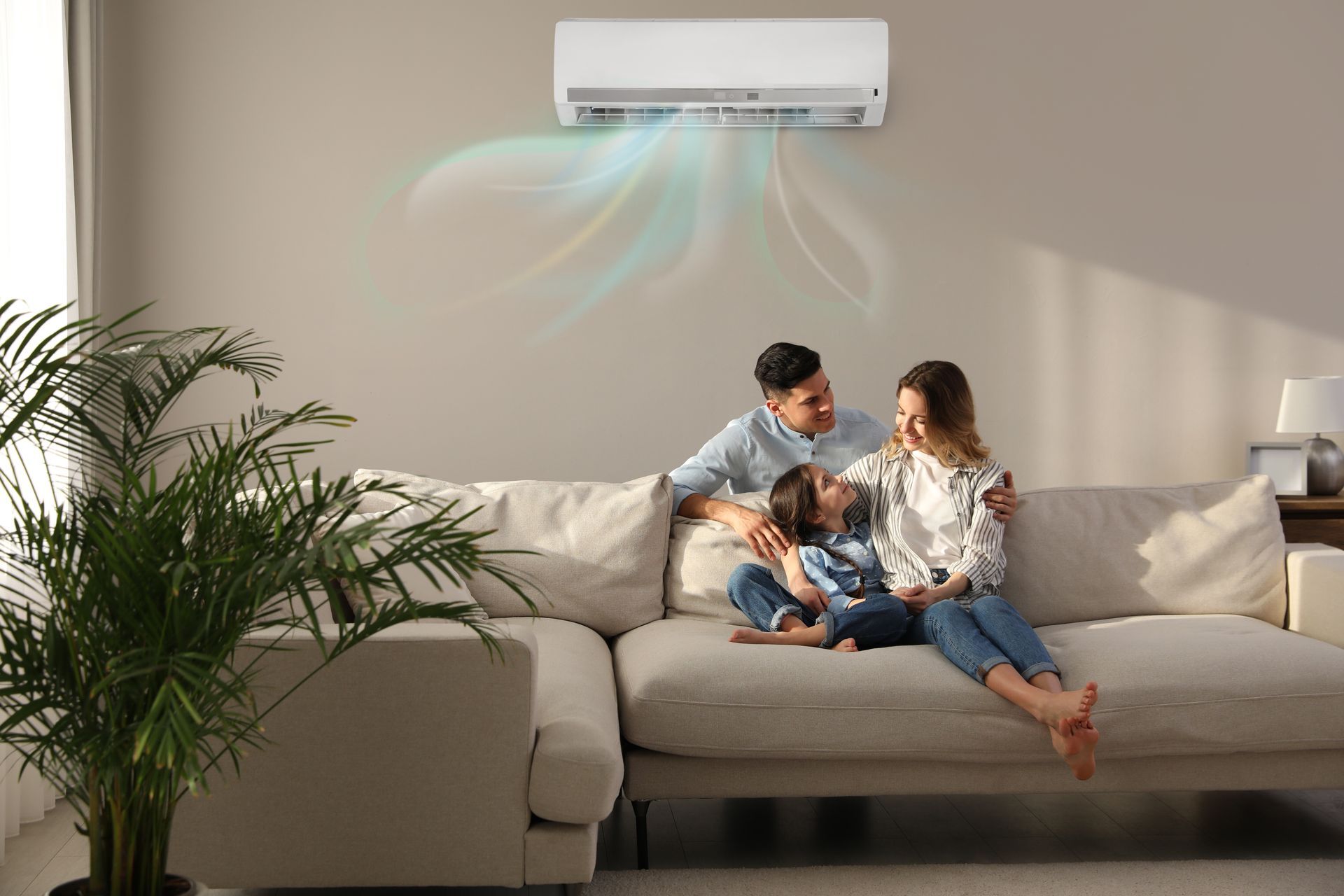
May 17, 2024
In today's increasingly indoor world, the air quality we breathe inside our homes and workplaces can significantly impact our health. Our HVAC systems, the silent sentinels of our indoor environments, play a pivotal role in maintaining indoor air quality. Understanding this connection can help us ensure our environments are comfortable and conducive to our health and well-being. The Importance of Air Filtration One of the primary functions of an HVAC system is to filter out particulates and pollutants from the air you breathe. The filters in your HVAC system trap dust, pollen, pet dander, and other airborne particles that can exacerbate allergies and respiratory issues. Investing in high-quality, high-efficiency particulate air (HEPA) filters can enhance this function significantly. HEPA filters can trap particles as small as 0.3 microns, effectively removing up to 99.97% of airborne pollutants from the air that passes through them. Regular replacement or cleaning of HVAC filters is crucial. Over time, filters become clogged with the very contaminants they trap, which can reduce system efficiency and compromise indoor air quality. It’s recommended to check filters monthly and replace them at least every three months to ensure optimal air quality and HVAC efficiency. Managing Humidity for Healthier Air Humidity levels play a critical role in determining the comfort and healthfulness of your indoor environment. Too much humidity can create an ideal breeding ground for mold, mildew, and dust mites, common allergens that can impact respiratory health. Conversely, air that is too dry can irritate your respiratory tract, skin, and eyes, worsening symptoms of colds and other respiratory illnesses. An optimally functioning HVAC system will help maintain the right balance of humidity in your home. This not only helps manage health issues but also preserves the structural integrity of your home and the longevity of its contents. Modern HVAC systems often come with built-in humidifiers and dehumidifiers that can be set to maintain an ideal humidity level, usually between 30% and 50%. HVAC Maintenance and Respiratory Health Proper HVAC system maintenance is essential for ensuring that it continues improving indoor air quality. A well-maintained system efficiently controls air temperature, humidity, and cleanliness, which can contribute to healthier indoor environments. Here are some key maintenance tasks that should be regularly performed: Regular Inspections: Having a professional technician inspect your HVAC system annually can help identify issues that may impact its efficiency and indoor air quality. Cleaning Air Ducts: Dust and debris can accumulate in your air ducts, and when your system runs, these contaminants can be circulated throughout your home. Cleaning your air ducts regularly ensures that your HVAC system promotes a cleaner, healthier air circulation. Servicing Your HVAC Unit: Ensuring that all components of your HVAC system are functioning correctly can prevent problems that might lead to poor air quality. This includes checking for leaks, ensuring that the system is properly sealed, and that it cycles and drains correctly. Conclusion The connection between HVAC systems and indoor air quality is undeniable and understanding this connection is key to creating healthier indoor environments. You can significantly improve the air quality in your indoor spaces by choosing the right filters, maintaining appropriate humidity levels, and ensuring regular HVAC system maintenance. This enhances the comfort and enjoyment of these spaces and can lead to better health outcomes, particularly for those suffering from allergies and respiratory conditions. Remember, a well-maintained HVAC system is your first line of defense when it comes to indoor air quality.
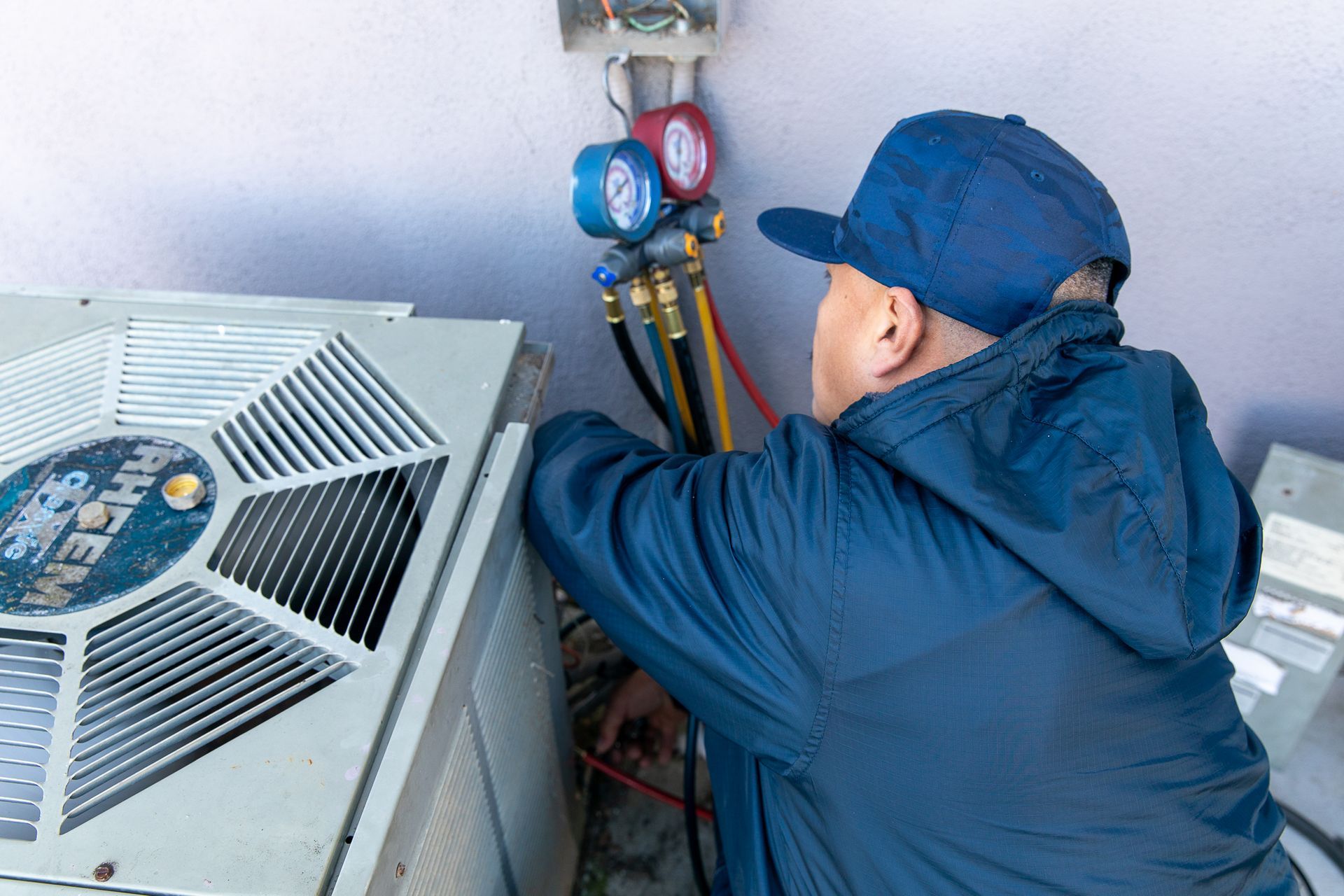
April 5, 2024
Keeping your home comfortable throughout the year heavily depends on the efficiency and effectiveness of your HVAC (Heating, Ventilation, and Air Conditioning) system. Regular maintenance is not just about preventing breakdowns; it's about optimizing performance, extending the lifespan of your unit, and saving on energy costs. Here’s a comprehensive guide to help homeowners maintain their HVAC systems, including seasonal maintenance tips, signs of potential issues, and the importance of professional check-ups. Seasonal Maintenance Tips Spring Air Conditioning Prep: Before the heat sets in, clean or replace the air filters, check the coolant levels and ensure the outdoor unit is debris-free. It’s also a good time to test your AC to avoid surprises on the first hot day. Duct Inspection: Check your ducts for leaks or blockages. Even small leaks can significantly reduce system efficiency. Summer Regular Filter Changes: Summer often means your AC is working overtime. Changing the air filters monthly can prevent overworking your system and maintain air quality. Thermostat Settings: If you don’t already have one, opt for a programmable thermostat. Setting it to a higher temperature when you’re not home can save energy and reduce strain on your HVAC. Fall Heating System Check: Ensure your furnace or heating system is ready before the cold arrives. Check the pilot light, replace the filter, and listen for any unusual noises when you turn it on. Seal Leaks: Seal any leaks around doors and windows to keep the warm and cold air in, reducing the heating system's workload. Winter Insulate: Proper insulation in your attic and walls can significantly reduce heating costs and strain your HVAC system. Vent Clearance: Keep all vents clear of furniture, rugs, and curtains to allow free airflow and even heating throughout your home. Signs of Potential Issues Be on the lookout for these common signs that your HVAC system may need a closer look or professional repair: Unusual Noises: Grinding, squealing, or banging noises can indicate mechanical problems. Weak Airflow: This could indicate a failing compressor or blocked vents. Odd Smells: Musty smells might suggest mold in the ducts, while a burning odor could indicate an electrical problem. Inconsistent Temperatures: If some rooms are too cold while others are too hot, your system might not distribute air properly. Rising Energy Bills: An unexpected increase in your utility bills often points to an inefficient HVAC system. The Importance of Professional Check-Ups While there’s a lot you can do on your own to maintain your HVAC system, professional check-ups are essential for several reasons: Expertise: HVAC professionals have the skills to spot issues you might miss. Comprehensive Maintenance: They perform comprehensive maintenance, including checking coolant levels, inspecting electrical connections, and ensuring the system operates efficiently and safely. Preventative Care: Regular professional maintenance can prevent small issues from becoming big, expensive problems. Safety: HVAC systems involve electricity, gas, and refrigerants that professionals should handle to ensure your home’s safety. Finding a Reliable HVAC Professional Look for licensed, insured, and well-reviewed HVAC professionals in your area. A trustworthy technician will be transparent about what services are necessary and why, helping you understand the care your system needs. Conclusion Regular HVAC maintenance is key to a comfortable, safe, and energy-efficient home. By following these seasonal maintenance tips and recognizing signs of trouble, you can take proactive steps to care for your system. Remember, combining DIY maintenance with professional check-ups can extend the life of your HVAC system, improve its performance, and save you money in the long run. Don't wait for a breakdown to give your HVAC the attention it deserves—make maintenance a priority today.
Ready to Get Started?
Contact us today to schedule a consultation or service appointment. Our friendly staff is ready to answer your questions and help you navigate your HVAC repair or installation needs. Experience the difference with San Diego’s preferred AC service provider.
